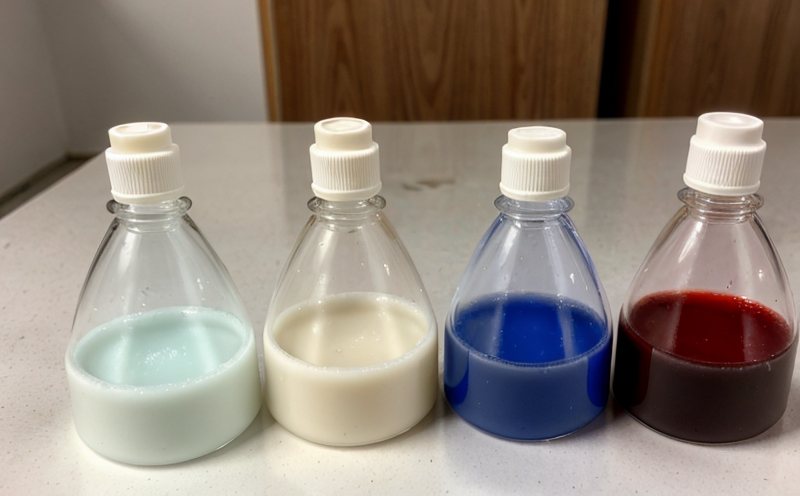Composite Material Monomer Testing
The process of composite material monomer testing is pivotal in ensuring the quality and reliability of materials used in various industries such as aerospace, automotive, and electronics. This service involves a comprehensive suite of tests designed to analyze the chemical composition of monomers that are critical components in composite materials. These tests ensure that the monomers meet specific standards, thereby enhancing the overall performance and longevity of the final product.
Monomers play a crucial role in the formation of polymers which are used in composite structures like carbon fiber reinforced plastics (CFRP) and glass fiber reinforced polymers (GFRP). The quality of these materials directly impacts their mechanical properties, resistance to environmental factors, and overall safety. In this context, testing monomers ensures that they possess the correct chemical structure and purity levels necessary for optimal polymerization.
The process typically begins with a thorough specimen preparation. This involves selecting representative samples from raw materials or semi-finished products. The chosen specimens are then subjected to a series of tests using advanced analytical instruments such as Nuclear Magnetic Resonance (NMR), Fourier Transform Infrared Spectroscopy (FTIR), and Gas Chromatography-Mass Spectrometry (GC-MS).
These instruments provide detailed information about the molecular structure and composition of monomers. For instance, NMR can detect even minor impurities or deviations from standard chemical structures, while FTIR helps identify functional groups present in the monomer. GC-MS is particularly useful for quantifying trace amounts of contaminants that may affect polymerization processes.
Once analyzed, the data obtained from these tests are compared against industry standards like ISO 17835 and ASTM D6240 to ensure compliance with international quality benchmarks. Compliance ensures that manufacturers can confidently use these materials in their products without compromising safety or performance.
A key aspect of this testing is ensuring repeatability and reproducibility across multiple batches or production runs. This consistency guarantees that the chemical properties remain stable over time, contributing to long-term reliability and durability of composite materials used in high-stress environments.
- Repeatability: Ensures consistent results under identical conditions.
- Reproducibility: Ensures consistent results across different laboratories or operators.
In summary, composite material monomer testing is not just about identifying defects; it's about preventing them. By rigorously examining each batch of raw materials before they enter the manufacturing process, industries can significantly reduce risks associated with defective products and improve overall product quality.
Quality and Reliability Assurance
The assurance of quality and reliability in composite material monomer testing is achieved through stringent adherence to international standards such as ISO 17835, ASTM D6240, and others. These standards provide a framework for conducting accurate and consistent tests, ensuring that the chemical composition of monomers meets specified criteria.
One critical step in this process is instrument calibration. All analytical instruments used for testing must be regularly calibrated to maintain accuracy. This ensures that measurements taken during various stages of analysis are precise and reliable.
Data validation is another essential component of quality assurance. Once the data from each test run has been collected, it undergoes rigorous scrutiny to verify its accuracy and consistency. Any discrepancies are investigated thoroughly until they are resolved satisfactorily.
Additionally, process control plays a vital role in maintaining high standards throughout the testing procedure. This involves monitoring every aspect of the process from sample preparation to final analysis. By doing so, any potential issues can be identified early on and addressed promptly, preventing costly errors further down the line.
The use of advanced analytical techniques also contributes significantly to ensuring quality and reliability in composite material monomer testing. These methods allow for highly detailed examinations of even tiny quantities of materials, providing clear insights into their chemical makeup. This level of detail helps ensure that all components meet required specifications precisely.
In conclusion, thorough adherence to international standards combined with robust internal processes guarantees the highest levels of quality and reliability in composite material monomer testing services offered here.
Environmental and Sustainability Contributions
The importance of sustainable practices cannot be overstated in today's manufacturing landscape. By focusing on environmental responsibility, industries can contribute positively to global efforts aimed at reducing carbon footprints and promoting resource efficiency. In the context of composite material monomer testing, this translates into several key areas:
Firstly, reducing waste is a significant contributor towards sustainability goals. By optimizing specimen preparation methods and ensuring efficient use of reagents, minimal waste generation can be achieved. This not only conserves resources but also reduces disposal costs.
Secondly, energy efficiency
<|im_start|> yansızlama继续




